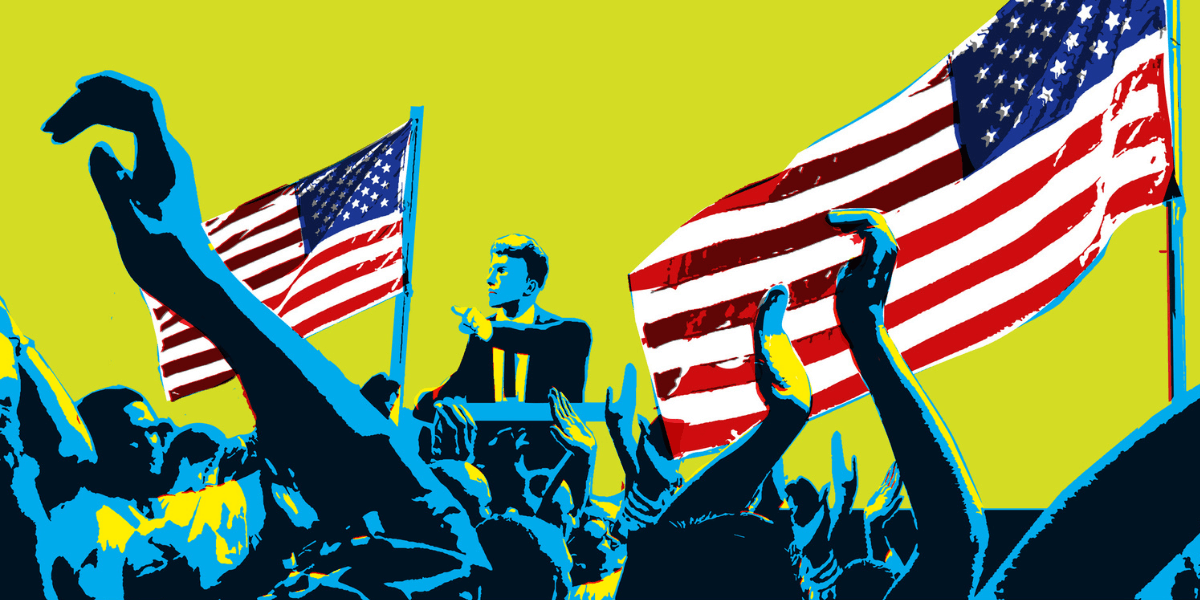
Photo credit: smartboy10/iStock
They have the power to distort elections. Bots, or automated social media accounts, can spread false news, amplify conspiracy theories, and exacerbate political echo chambers, manipulating discourse online.
In 2016, researchers led by Professor of Computer Science and Communication Professor Emilio Ferrara and Principal Scientist at USC Viterbi’s Information Sciences Institute (ISI) uncovered the extensive use of bots in what later proved to be a Russian interference campaign during the U.S. presidential election. In 2020, they revealed political manipulation by QAnon and other conspiracy groups.
Now, as the 2024 presidential election looms, the stakes are higher than ever. “This is going to be an election that could have even more malicious activity,” Luca Luceri, a research assistant professor at ISI and scientist in Ferrara’s lab, says. “We have moved from bots that were simply retweeting content to the potential use of generative AI.”
In response to these evolving digital threats, Ferrara and Luceri have teamed up to launch a new project, The 2024 Election Integrity Initiative. It aims to fight against online disinformation and manipulation with global impact. “We have been carrying out projects related to safeguarding political discourse online for more than 10 years now,” Ferrara says. “This is a continuation of that lineage.”
Bigger, Better Data
Over the next few years, the 2024 Election Integrity Initiative, led by Ferrara’s USC HUMANS Lab, will focus on monitoring and analyzing data from various social media platforms and niche communities in real-time. These efforts will materialize into a range of published resources, including datasets and technical memos, to empower other researchers and inform policymakers.
One of the first goals of the initiative is the development of a robust, multi-platform data collection infrastructure. This ambitious undertaking aims to create a comprehensive foundation for future analyses and investigations. It also significantly expands the scope of previous research efforts.
While past studies primarily focused on X, formerly Twitter, as the de facto digital town square, the researchers have now cast a wider net, reflecting the evolving landscape of online political discourse. Their data encompasses mainstream platforms like TikTok, Telegram, and Reddit, as well as niche forums such as Gab, Parler, and Truth Social—sites that have gained traction.
“Where the users go, we as researchers, as scholars, as scientists, need to follow,” Ferrara says. “Otherwise, you would only be looking at a partial picture.”
By broadening their data collection, the team aims to capture a complete, “birds eye view” of the digital political ecosystem, tracking how information flows and evolves across different niche communities. It also allows them to analyze a broader multimedia environment, including videos, images, and even podcast content, recognizing that political manipulation can take many forms.
Public Tools for Integrity
Each platform dataset will be publicly released, so that researchers across the computational social science community can study potential phenomena.
“One of our main missions is to enable others,” Ferrara says. “To give people resources to spend time on these types of investigations and analyses, rather than having to figure out all the nuts and bolts of collecting data from all these platforms.”
In July, the team released their first dataset, about TikTok, encompassing 1.8 million videos related to the 2024 U.S. presidential election, spanning from November 2023 to May 2024. The data tracks keywords related to the two leading candidates during the months of data collection, President Joe Biden and Donald Trump. The team has been collecting associated keywords for Vice President Kamala Harris since the day Biden announced that he would end his re-election campaign.
Luceri emphasized the dataset’s versatility, noting its potential to address a wide array of research questions. Investigators could explore the profiles and behaviors of content producers, analyze the types and tones of messages being disseminated, and even identify conspiracies or misinformation.
The TikTok dataset will be continuously refined and updated, and more public datasets about Telegram and YouTube are expected in the coming months.
The New Threat of GenAI
In parallel, the USC ISI team is using the datasets to carry out cutting-edge investigations. This involves the second set of published resources from the project: technical memos and reports with actionable insights to safeguard democracy.
The project’s first memos, authored by Ferrara, address one of the most pressing new threats to election integrity: generative AI. Now, sophisticated AI tools, such as large language models, can potentially be weaponized to create an unprecedented array of deceptive content in the lead up to the election.
Ferrara warns against false news articles, deepfake videos of individuals making statements they never actually made, and fabricated celebrity endorsements designed to influence public opinion, all of which pose risks to democratic processes.
To keep these insights timely and useful, the initiative’s technical memos will be released as soon as they are completed, rather than waiting for peer-review, which can take a year or more. This rapid dissemination approach could allow for immediate action and awareness in the face of online election manipulation.
“One of our objectives is to make platforms accountable and regulators aware that something might be going on,” Luceri says. Though the team cannot anticipate their findings until they dig into the data, it’s possible that they could one day reveal influence campaigns from foreign actors, or digital activity that might lead to violence, election manipulation, or voter suppression.
The Road Ahead: Global Monitoring
The pressing nature of this topic has attracted a promising team to the 2024 Election Integrity Initiative. Within USC ISI, the project has already formed a core group of about a dozen researchers, supplemented by an equal number of student volunteers. While the immediate focus is on the 2024 U.S. election, as the project continues, these students will influence future research directions, including which global elections will be studied.
“Our group has an eye on interesting geopolitical events around the world that might have some instances of manipulation,” Luceri says. “Some of our students are interested, for instance, in tracking elections in South America, others in Europe.”
Each election will require a bespoke approach, starting with identifying and tracking relevant keywords and hashtags across multiple platforms. From there, the team will untangle millions of posts to unveil potential findings.
“In the lead up to any election, it’s important to have as many eyes as possible on online political conversations,” Ferrara said. “We need to minimize the risk that any manipulation operation can escape discovery.”
Published on August 14th, 2024
Last updated on August 14th, 2024











